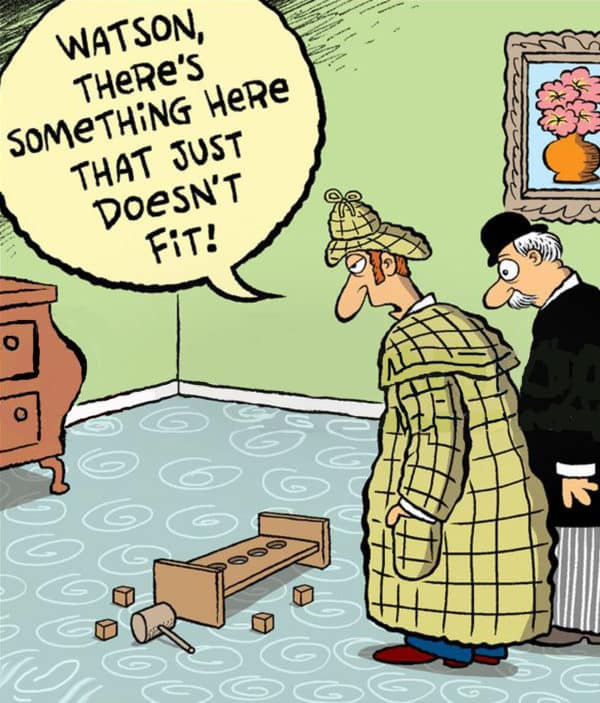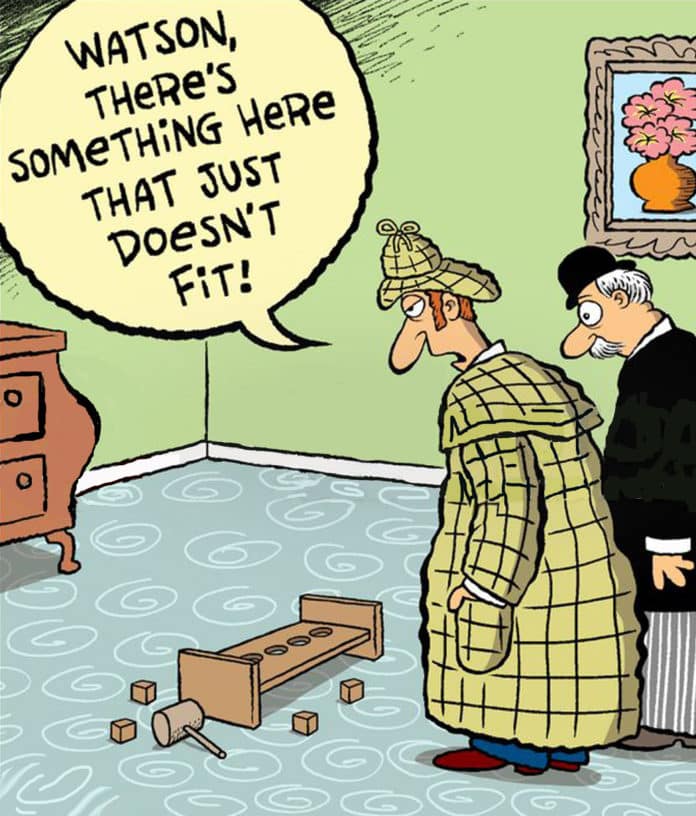Keep things simple, I always say. The famous equation E = mc2 could be much more simply stated as “Energy equals 2 squares of milk chocolate.” Job done.
But that was clearly beyond a complicated man like Albert Einstein. He might even have added, “Be sure to clean your teeth afterwards,” as I always do when explaining my new theory, but then I’m possibly a bit more thoughtful than Einstein, and it’s kind of you to say so.
The difficulty with trying to keep things simple is that many everyday facts and experiences aren’t really as they seem to our five senses, or your sixth sense if you’re like me. It takes light, for example, time to reach us, so we actually see things as they looked a little bit earlier.
This can range from seeing clouds in the sky as they looked a millionth of a second ago, to seeing the North Star as it looked 434 years ago. Who says you can’t see into the past? Come to think of it, I wasn’t alive 434 years ago. Might I disappear if I stare too long at the North Star? It’s complicated, mainly thanks to my scientific ignorance.
Our pal Einstein worked out that if you run around in a circle, you’ll age more slowly. I often feel I’ve been running around in circles all my life, but I can’t say I feel all that much younger, only permanently dizzy.
Even the great detective Sherlock Holmes was guilty of overthinking things at times. Once when he went camping on Dartmoor with Dr Watson, Holmes looked up at the night sky and began making elaborate deductions in his inimitable way: “Millions of stars, some will have planets, a few will certainly have life, what do you think, old chap?” Watson, always the blunt instrument, simply said, “I think someone has stolen our tent, Holmes.”
It is an undeniable fact that some people prefer complexity to simplicity. Chess players and crossword enthusiasts come to mind, and of course most men are intrigued by the mystery of women, about whom most men know next to nothing. Or more precisely, nothing.
Some of my favourite simple things were introduced to me by my schoolteachers. “Words have meaning because we all agree on their meaning.” (Are you following me so far?) And “English grammar is simple, i before e except after c. But not always.” And even more useful — “There is always an increase in disorder, known as ‘entropy’, meaning you can never return to the same energy state.” I thought that was simply old age. But I should have known it would turn out to be more complicated than that. I’m going to revert to running around in circles again, it’s easier.






